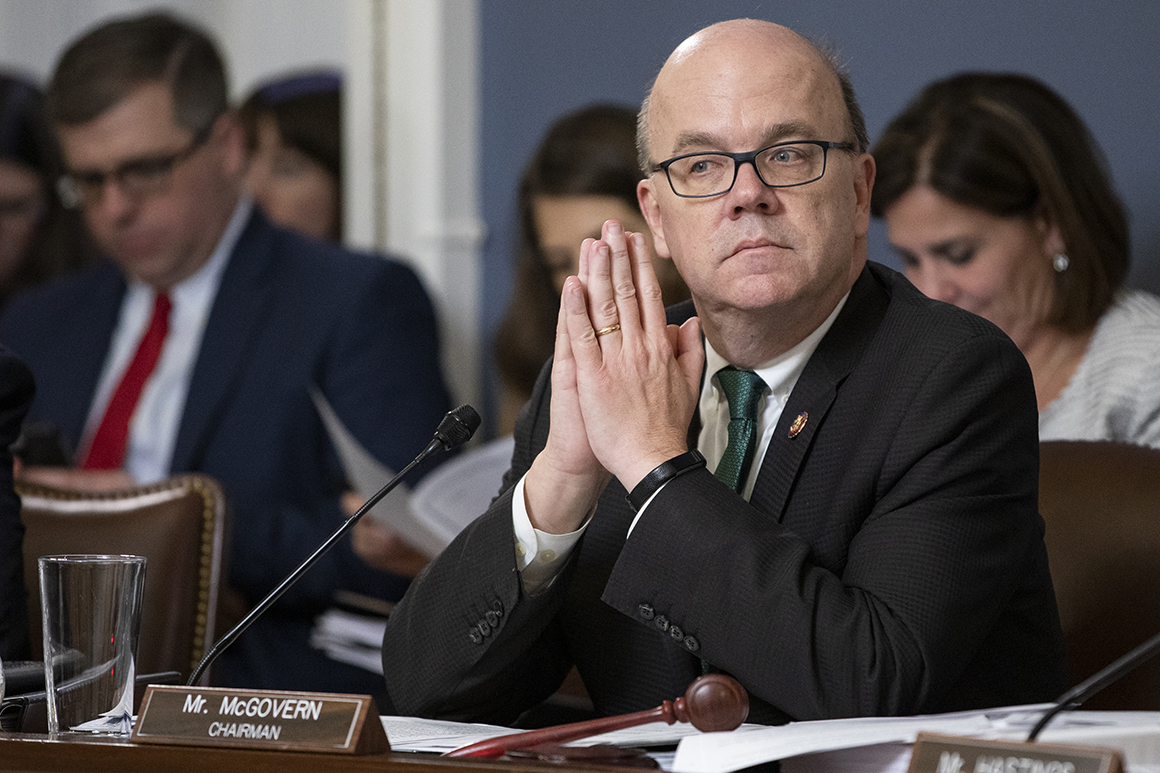
“I am prepared to recommend remote voting by proxy,” McGovern told House Democrats, according to multiple sources on the call. Proxy voting would allow a member who is physically present in the chamber to cast a vote for lawmakers who are absent, only for a limited period of time.
McGovern said Republican leaders seem open to the idea, especially if it is limited to emergency legislation, raising the possibility that both sides could agree to temporarily change the House rules via a voice vote. If not, lawmakers would have to come back to the chamber to approve the rules change in person.
Any changes on the House side are unlikely to be mirrored in the Senate, where lawmakers are even more strict in honoring institutional traditions.
Sen. Roy Blunt, who leads the Senate’s Committee on Rules and Administration, poured cold water on the idea of proxy voting on Thursday, telling reporters: „I think the Constitution clearly anticipates that members would be present.“
Blunt said the Senate is looking at ways to hold remote hearings, but said Congress had already dismissed the idea of voting away from Washington in the aftermath of the Sept. 11 attacks.
„We’ve dealt with these issues and even more difficult scenarios than whether you should get on an airplane or not because you might catch a virus,“ Blunt told reporters.
Congressional leaders in both parties have largely been resistant to the idea of remote voting, saying there are significant legal and technological hurdles to implementing such a system. But after Congress extended its recess until at least early May, it became clear party leaders would have to revisit the idea.
“Until we have an appropriate way to do it, we can’t do it. So it’s not about being negative on it, it’s just, show us the way,” Speaker Nancy Pelosi (D-Calif.) said on her weekly press call Thursday. “Until we have the technology and until we have the passing of the rules that will enable it, it’s no use to say we should do it.”
McGovern’s recommendation comes amid mounting frustration among rank-and-file Democrats, particularly freshmen, who have urged their leadership to allow Congress to convene in some fashion while members remain homebound.
It’s unclear whether the recommendation will ease concerns from some in the caucus, however. One lawmaker calling for remote voting privately dismissed the idea, saying it doesn’t address the broader issue of getting Congress back to work and isn’t a serious enough proposal.
On the caucus call, McGovern also floated the idea of altering House rules to allow for remote committee hearings, something that is currently prohibited. But, McGovern said, that suggestion is likely to meet resistance from Republicans.
A group of lawmakers, mostly Democrats, had begun circulating a resolution last week that would have required Pelosi and House Minority Leader Kevin McCarthy (R-Calif.) to task a group of members to devise a plan that allows the House to debate and vote remotely.
That push has won support from roughly 20 members — including a dozen of the Democrats’ most endangered members, who are most sensitive to the optics that the House isn’t in session, even as members are actively engaged in the response from their districts.
In a report in mid-March, McGovern strongly endorsed the idea of voting via unanimous consent, saying it was “by far the best option” because it wouldn’t require a change in House rules.
But McGovern also said that proxy voting could be Congress’ next best solution to continuing its work despite the highly infectious virus. He called it “likely the best of the options available under the circumstances” in the report to members laying out all of the House’s options in late March — though he noted it was not ideal because it would still require a rules change.
House leaders ultimately decided to take up the $2 trillion coronavirus relief package by “unanimous consent,” which resulted in a single lawmaker, Rep. Thomas Massie (R-Ky.), ruining their plans. Leaders of both parties in the House were forced to scramble to call as many of their members back to the Capitol to override Massie’s objections and pass the overwhelmingly bipartisan bill.
Source: politico.com
See more here: news365.stream






